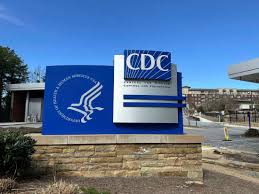
A federal medical advisory panel, reshaped under the influence of President Donald Trump’s health secretary and vaccine skeptic Robert F. Kennedy Jr., has made its first change to America’s childhood immunization schedule—prompting alarm among public health experts.
The Advisory Committee on Immunisation Practices (ACIP) voted on Thursday to recommend that children under four should no longer receive the combined MMRV vaccine—which protects against measles, mumps, rubella, and varicella (chickenpox). Instead, the panel advised offering separate MMR and chickenpox injections.
The MMRV vaccine carries a small risk of temporary febrile seizures, which are non-life-threatening. However, medical professionals stressed that the risk has long been understood, and parents in the U.S. already have the option to choose between the combination shot and separate vaccines.
“This debate was settled years ago,” said Dr. Sean O’Leary, chair of the American Academy of Pediatrics’ Committee on Infectious Diseases. “Parents already have both options. The only reason to bring this back now is to create unnecessary fear.”
Kennedy—who has promoted vaccine misinformation for decades, including the debunked claim that the MMR shot causes autism—overhauled ACIP after his appointment, removing every previous member and replacing them with individuals who share his skepticism.
That skepticism was on full display during Thursday’s meeting, drawing criticism from medical professionals present as non-voting observers.
“You’re not looking at the full picture of vaccine implementation,” warned Dr. Jason Goldman, president of the American College of Physicians. “Instead, you’re cherry-picking small data points and misrepresenting how vaccines work in real-world patient care.”
Public health leaders fear this could be the first of several politically driven moves to reshape U.S. vaccine policy, potentially undermining decades of scientific consensus and eroding confidence in childhood immunization programs.



